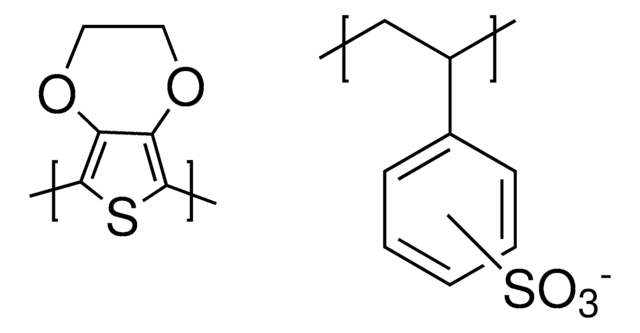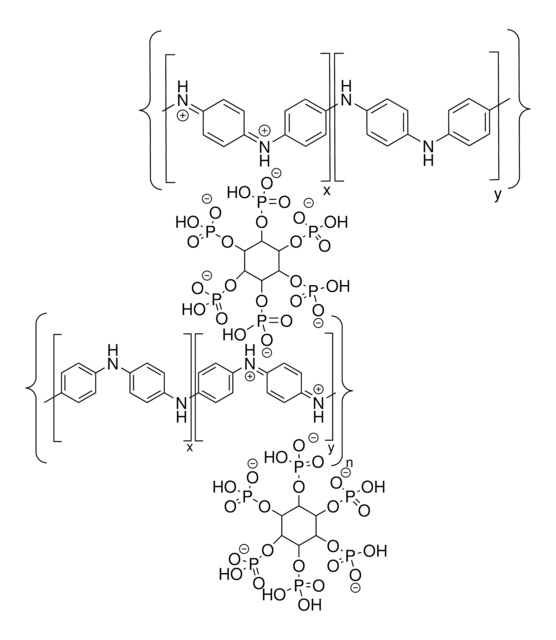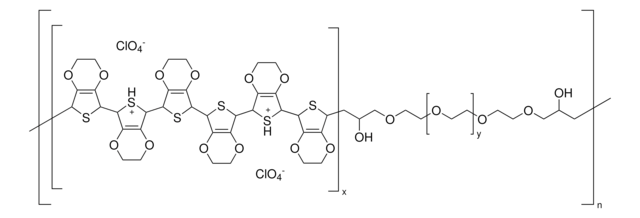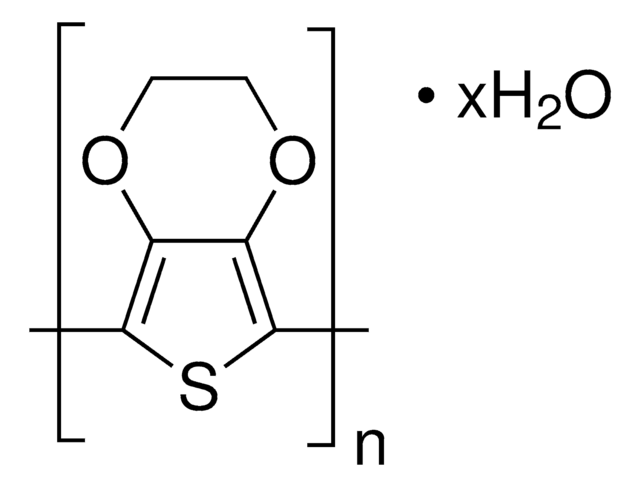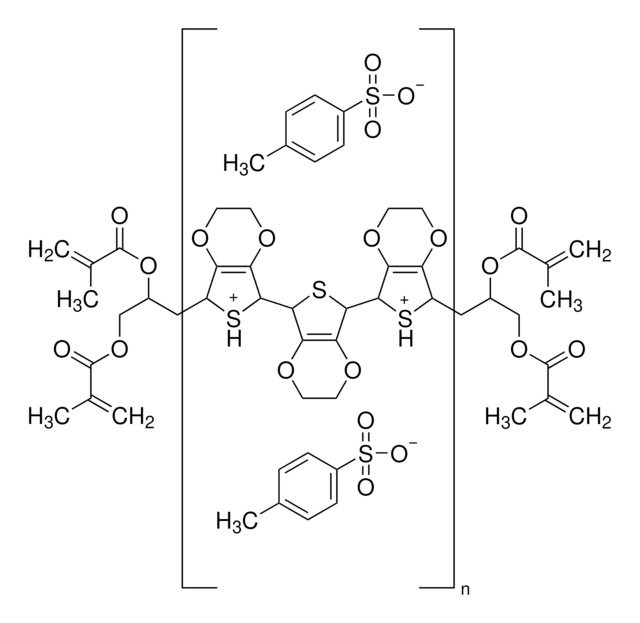768618
Poly(3,4-ethylenedioxythiophene)-poly(styrenesulfonate)
dry re-dispersible pellets
Synonym(s):
Orgacon™ DRY, PEDOT:PSS, Poly(2,3-dihydrothieno-1,4-dioxin)-poly(styrenesulfonate)
About This Item
Recommended Products
form
dry re-dispersible pellets
resistance
200-450 Ω/sq
mp
>300 °C
Looking for similar products? Visit Product Comparison Guide
General description
- good optical properties
- high conductivity
- functionalization of nanomaterials
- high thermal stability
- easy processing
Application
Orgacon DRY pellets can be re-dispersed in organic solvents such as ethanol. The resulting dispersion can be used in coating - or ink - formulations targeted for different applications.
Allow retention of PEDOT/PSS key properties in polar organic solvents; such as Ethanol; Surface Resistance: 200~450 Ohm/square; Visual Light Transmission: ~85%
Physical properties
- Active chemical PEDOT/PSS
- Visual appearance blue-grey pellets
- Water content max. 15 % under 50% RH; 22°C
- Shelf life 24 month in storage conditions
Preparation Note
Legal Information
Signal Word
Danger
Hazard Statements
Precautionary Statements
Hazard Classifications
Eye Dam. 1
Storage Class Code
11 - Combustible Solids
WGK
WGK 3
Flash Point(F)
Not applicable
Flash Point(C)
Not applicable
Choose from one of the most recent versions:
Already Own This Product?
Find documentation for the products that you have recently purchased in the Document Library.
Customers Also Viewed
Articles
Find advantages of inorganic interface layer inks for organic electronic & other applications.
Progress in Organic Thermoelectric Materials & Devices including high ZT values of >0.2 at room temperature by p-type (PEDOT:PSS) & n-type (Poly[Kx(Ni-ett)]) materials are discussed.
The application of conducting polymers at the interface with biology is an exciting new trend in organic electronics research.
Organic photovoltaics (OPVs) represent a low-cost, lightweight, and scalable alternative to conventional solar cells. While significant progress has been made in the development of conventional bulk heterojunction cells, new approaches are required to achieve the performance and stability necessary to enable commercially successful OPVs.
Our team of scientists has experience in all areas of research including Life Science, Material Science, Chemical Synthesis, Chromatography, Analytical and many others.
Contact Technical Service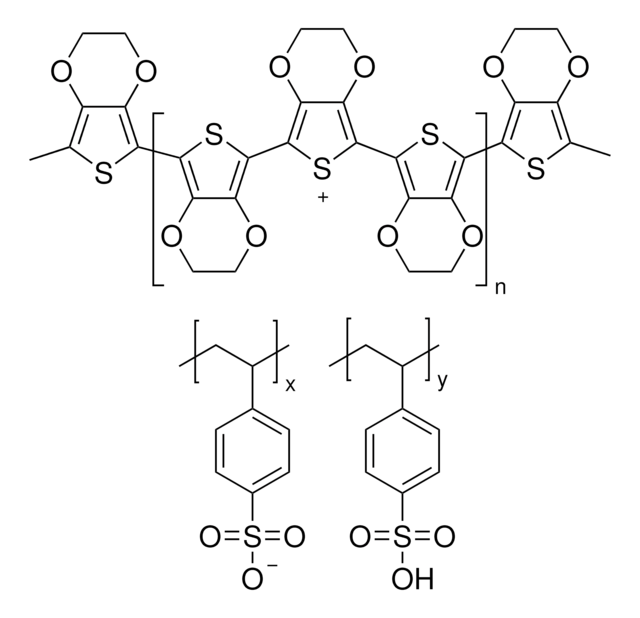
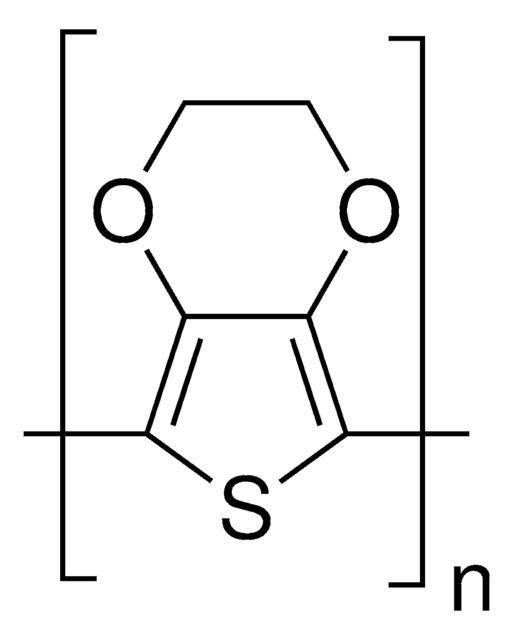
![Poly[2-methoxy-5-(2-ethylhexyloxy)-1,4-phenylenevinylene] average Mn 40,000-70,000](/deepweb/assets/sigmaaldrich/product/structures/344/488/b8f8179d-3970-4deb-a754-adda88cdb36f/640/b8f8179d-3970-4deb-a754-adda88cdb36f.png)
